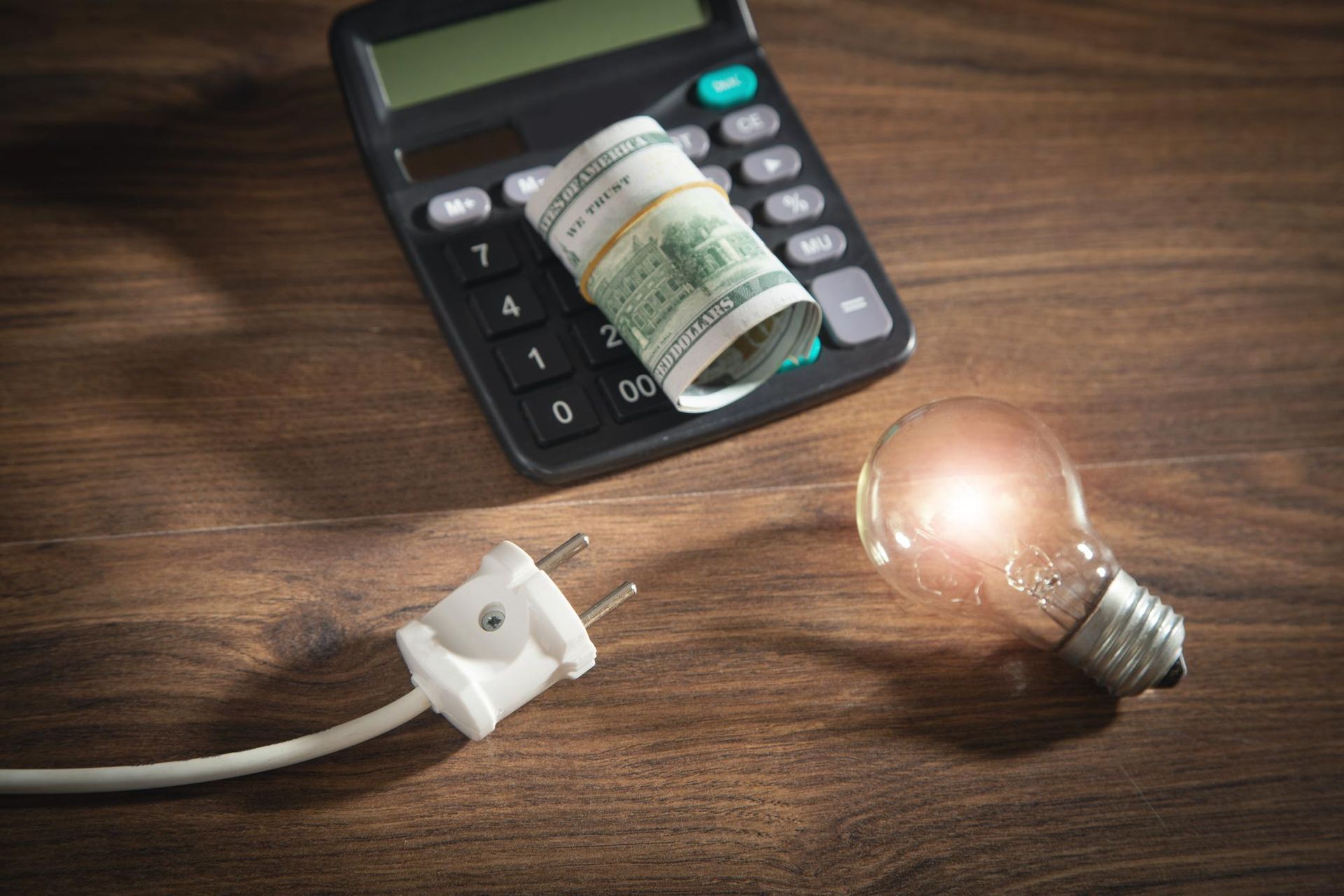5 Signs You Need Electric Repair Services Now
When you start noticing odd things happening with the electricity in your home, it's a clear sign you might need to search for "electric repair near me." Keeping your home's electrical system in top shape is crucial, not just for convenience but for your family's safety. Ignoring even what might seem like minor electrical issues can lead to significant risks, including fire hazards or electrical shocks. But how do you know when it's time to call in the professionals? In this article, we'll walk you through five unmistakable signs that indicate the need for electric repair services right away.
5 Signs You Need Electric Repair Services Now
Sign 1: Flickering or Dimming Lights
When the lights in your house start acting like they're part of a spooky movie, flickering or dimming unexpectedly, it's not just an annoyance—it's a signal from your home that something's not quite right with the electrical system. This phenomenon is often one of the first noticeable signs of electrical issues. It could be something as simple as a loose light bulb, but more often than not, it points to deeper problems such as an overloaded circuit, outdated wiring, or a malfunctioning electrical panel.
Imagine you've plugged in the vacuum cleaner, the TV is on, and someone decides to use the microwave. Suddenly, the lights start to dim or flicker. This is a classic case of an overloaded circuit where too many appliances are drawing power simultaneously. Older homes, in particular, may not have the electrical capacity to support modern-day power demands, leading to frequent light flickering or dimming.
Another culprit could be loose or faulty wiring. Over time, wires can become frayed, loose, or damaged, causing intermittent connections. This is not just an issue of flickering lights; it's a potential fire hazard. Loose connections can generate heat, leading to wear and tear on your electrical system and, in worst-case scenarios, sparking electrical fires.
Sign 2: Frequent Circuit Breaker Trips
Your home's circuit breaker is like a vigilant guardian, constantly monitoring the electrical current and protecting your home from potential overloads and short circuits. When it detects an overload—a condition where too much current flows through the electrical system—it trips, cutting off power to the affected area to prevent wires from overheating and potentially causing a fire.
If you find yourself making frequent trips to the breaker box to reset a tripped circuit, it's a clear sign that your electrical system is under more strain than it can handle. This could be due to having too many high-power devices running simultaneously, or it might indicate that a specific appliance is faulty and drawing too much power.
Another reason for frequent breaker trips could be an outdated electrical panel that's not equipped to handle your home's energy needs. Electrical panels have a lifespan, and older panels may not only be insufficient for modern power demands but can also degrade over time, leading to inefficient operation and safety hazards.
In some cases, the issue might be a short circuit, a more serious problem where a hot wire comes into contact with a neutral wire, causing a significant increase in electrical flow. This can cause the breaker to trip immediately upon turning on a particular appliance or light. Short circuits can be due to faulty wiring or issues within appliances themselves and require immediate attention from a professional electrician to resolve safely.
Sign 3: Burning Smells or Unusual Odors
Nothing grabs attention quite like the smell of something burning, especially when it's coming from your walls or electrical devices. This alarming sign should never be ignored, as it often indicates that an electrical component is overheating and could be on the verge of catching fire. The smell may be reminiscent of burning plastic, as many electrical wires and components are encased in plastic insulation. When this insulation overheats, it melts and emits a distinct and acrid odor.
This situation might arise from several issues, such as an overloaded circuit causing wires to heat up beyond their designed tolerance, or a faulty device pulling more current than it should, leading to overheating. Another common cause is old or damaged wiring that can't safely conduct the current passing through it, leading to hot spots that can burn the insulation.
Immediate action is required when you detect such odors. First, try to identify the source. If it's an appliance, unplug it and avoid using it until it can be checked by a professional. If the smell seems to be emanating from an outlet, switch, or your
electrical panel, cut power to the area and call an electrician right away. These situations can escalate quickly, posing serious fire risks to your home.
Sign 4: Shock or Tingling Sensation When Touching Appliances
Experiencing a shock or tingling sensation upon touching an appliance is more than just an unpleasant surprise; it's a red flag that something is wrong with the appliance or your home's electrical grounding. This should never occur in a properly functioning electrical system. Electricity is meant to flow in a closed circuit, and when you receive a shock, it means you've inadvertently become part of the circuit, which is a clear indication of a grounding issue or a fault in the appliance itself.
Several factors could cause this problem. A common one is a grounding issue, where the
electrical system or the appliance lacks a proper pathway to divert unwanted electrical current safely to the ground. This can occur in older homes that haven't been updated to include modern, three-pronged outlets with grounding capabilities. Another possibility is a fault within the appliance, such as a frayed wire or a malfunctioning component, allowing electricity to leak onto the appliance's metal parts.
When you feel a shock or tingling, it's crucial not to dismiss it, especially if it's a recurring problem. Start by unplugging and avoiding use of the offending appliance and check other devices to see if the issue is isolated or more widespread. If multiple appliances or outlets seem problematic, or if you're unsure of the cause, it's time to call in a
professional electrician. They can assess your home's electrical system, identify the root cause, and ensure that your electrical system is safe and up to code, protecting you and your family from potential electrical hazards.
Sign 5: Outdated or Ungrounded Outlets
Outdated electrical systems, especially those with two-prong outlets, are not only inefficient but also unsafe. Modern electrical standards require three-prong outlets for proper grounding, which protects your home from electrical surges and reduces the risk of electrical shocks. Additionally, areas of your home that are exposed to moisture, like bathrooms and kitchens, should have Ground Fault Circuit Interrupter (GFCI) outlets to prevent shock. If your home is still equipped with old outlets, it's a strong sign that your electrical system needs an upgrade by a professional.
Conclusion
Recognizing these five signs in your home can be the difference between maintaining a safe living environment and facing potential electrical hazards. Whether it's flickering lights, frequent breaker trips, strange odors, shocks from appliances, or outdated outlets, each sign points to the need for professional electric repair services. Ignoring these warnings can lead to more serious issues, including the risk of fire or severe electric shocks. If you're experiencing any of these issues in Kingfisher, OK, don't hesitate to reach out to us at Dale's 81 Electric, LLC. We're here to provide the professional help your home needs. Remember, when it comes to electrical repairs, it's always better to be safe than sorry. For top-notch service, call us at 405-375-4207.
FAQ’s
-
What causes electrical wiring to overheat?
Overheating of electrical wiring can be caused by several factors, including overloaded circuits, undersized wiring, poor connections, or aging and deteriorating wires. When too many devices are connected to a circuit, it can draw more current than the wires are rated to handle, leading to overheating.
-
How often should I have my home's electrical system inspected?
It's recommended to have your home's electrical system inspected every 3-5 years by a licensed electrician. However, if your home is over 40 years old, has undergone major renovations, or if you're adding new appliances that could strain your existing system, more frequent inspections may be necessary.
-
Can I do electrical repairs myself to save money?
While some minor electrical tasks, like replacing a light switch or outlet, can be done by a knowledgeable homeowner, most electrical repairs should be handled by professionals. Working with electricity can be extremely dangerous without the proper training and equipment. For safety and compliance with local codes, it's best to hire a licensed electrician for most repairs.
-
What is a GFCI outlet, and where should they be installed?
A Ground Fault Circuit Interrupter (GFCI) outlet is a safety device designed to protect against electrical shock by shutting off power when it detects a ground fault or leakage current. GFCI outlets are required in areas with a higher risk of water contact, such as bathrooms, kitchens, garages, outdoor areas, and unfinished basements.
-
What should I do if I experience a tingling sensation when touching an appliance or outlet?
If you experience a tingling sensation or shock when touching an appliance or outlet, it indicates a serious electrical problem, possibly a ground fault or a defect in the appliance itself. Immediately unplug the appliance and avoid using the affected outlet. Contact a licensed electrician to inspect and repair the issue to prevent potential injury or further electrical damage.
Need Expert Electrical Services?



